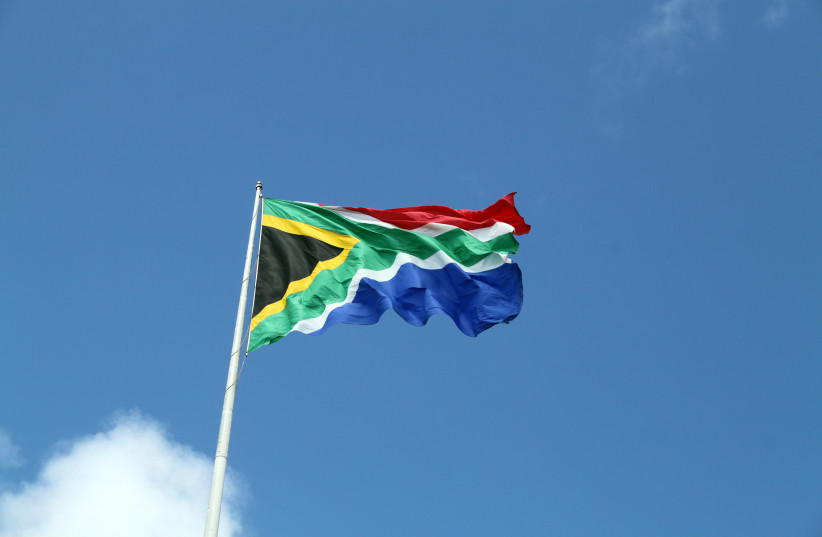Doomsday prognoses by international pundits over the future and welfare of South African Jewry have been around for as long as I can remember.
In the politically turbulent 1970s and ’80s these urged our community to pack its bags and leave, in the 1990s they warned of the dangers the new democracy and black rule posed to Jews, and in the present century, particularly in recent years, dire warnings about the bleak future facing Jews in the country have escalated.
The latest in the list of doomsday prophets is Rabbi Stewart Weiss, who in his opinion piece in The Jerusalem Post Magazine on December 3 (“Save South African Jewry!”), advises South African Jewry to turn off the lights, close up shop and come to Israel and for the Israeli government to facilitate that process.
I do not doubt that Rabbi Weiss has only the welfare of our community in mind, but it is a pity that he did not consult with some of those who are actually at the coalface of leading the community, the South African Jewish Board of Deputies included, before hastening to publish. Had he done so, the picture he paints would have been a great deal more accurate and nuanced.
From his trips to South Africa, Rabbi Weiss concludes that “Zionist institutions have virtually disappeared from the public scene.”

BDS groups would no doubt welcome this assertion, but sadly for them and happily for SA Jewry, it is very far from the truth. Zionism continues to thrive in South Africa, with the most recent survey conducted by the Kaplan Centre for Jewish Studies showing over 90% of SA Jews expressing a connection to Israel. Some 85% of Jewish children attend a Jewish day school, where they receive an excellent Jewish education, strengthened constantly by shlichim from Israel and new Zionist programs built into the curriculum. The Zionist youth movements are strong and flourishing.
Organizations like the SA Zionist Federation, SA Friends of Israel, Academy of Jewish Learning and Mizrachi are just some of the organizations promoting Zionism and Israel in South Africa. Our Independence Day and Remembrance Day functions attract some of the highest numbers of attendees globally. Most shuls not only say the prayer for the State of Israel but offer shiurim and learning relating to Israel. The fact that several – for ideological purposes – do not, and have not since their inception, is hardly unique to this community. Even in Israel itself, it is commonplace.
While Weiss correctly observes that the South African government has an anti-Israel track record, he fails to note that the Jewish community and many other South Africans continue to robustly challenge this agenda. One can do this because, for all its problems, South Africa remains a robust democracy. Despite a government minister trying to prevent our Miss South Africa Lalela Mswane from competing in the Miss Universe pageant in Eilat, she is now in Israel and will be carrying the South African flag proudly during the coming week.
Moreover, the majority of South Africans clearly disagreed with their government on their attempt to ban Miss SA’s participation. In polls conducted by the SA Broadcast Corporation, Newzroom Afrika and Dear SA, a plurality of between 57% and 90% of respondents opposed the government’s boycott call. It should also be noted that the ruling ANC no longer enjoys the domination it once took for granted, the recent local government elections having seen it drop to 46% from a high of 70% just 15 years ago.
In assessing communities as candidates for closure, a key factor Rabbi Weiss should also take into account is rates of antisemitism. In this regard, South Africa still retains one of the lowest rates in the Diaspora. In 2019, SA recorded just 37 incidents compared to 2,207 in Canada, 368 in Australia, and 1,805 in the UK. Last year there were 62 incidents in comparison to 2,610 in Canada, 331 in Australia and 1,668 in the UK. We also don’t see the violent antisemitism, including assault and damage and desecration of Jewish property, that some of our fellow Diaspora communities experience. Rabbi Weiss’s concern that “there is no guarantee that they will not become targets of the hate being generated around them” would thus be more aptly applied to countries where Jews are most being targeted by hate campaigns.
Nor is it true that there are eight million Muslims in South Africa. The number is in fact less than a quarter of that and in truth it is an irrelevant and inappropriate statistic to consider.
Certainly South Africa finds itself in a difficult place right now, which has negatively affected the mood in our community. The anti-Israel rhetoric is indeed upsetting, our economy is in a worrying state and the pandemic has hit us as hard as it has other Diaspora communities although contrary to what Rabbi Weiss writes, Omicron is not a “South African variant” but was in numerous countries before South African scientists discovered it – itself an indication that our country is not the basket case some assume it to be.
In summary, SA Jewry is not a “community in distress” nor does it need to be “rescued.” We remain a resilient community that cherishes its heritage, including Zionism. We are tenacious in standing up for our beliefs even when it is not comfortable. We have a unique vibrancy of Jewish life even under COVID restrictions, with a comprehensive range of schools, shuls, kashrut, multifaceted Jewish learning, vibrant youth movements and, yes, lots of Zionist organizations.
Much hard work lies ahead, but SA Jewry remains a thriving community that continues to creatively find solutions to its challenges.
The writer is national director of the South African Jewish Board of Deputies.
